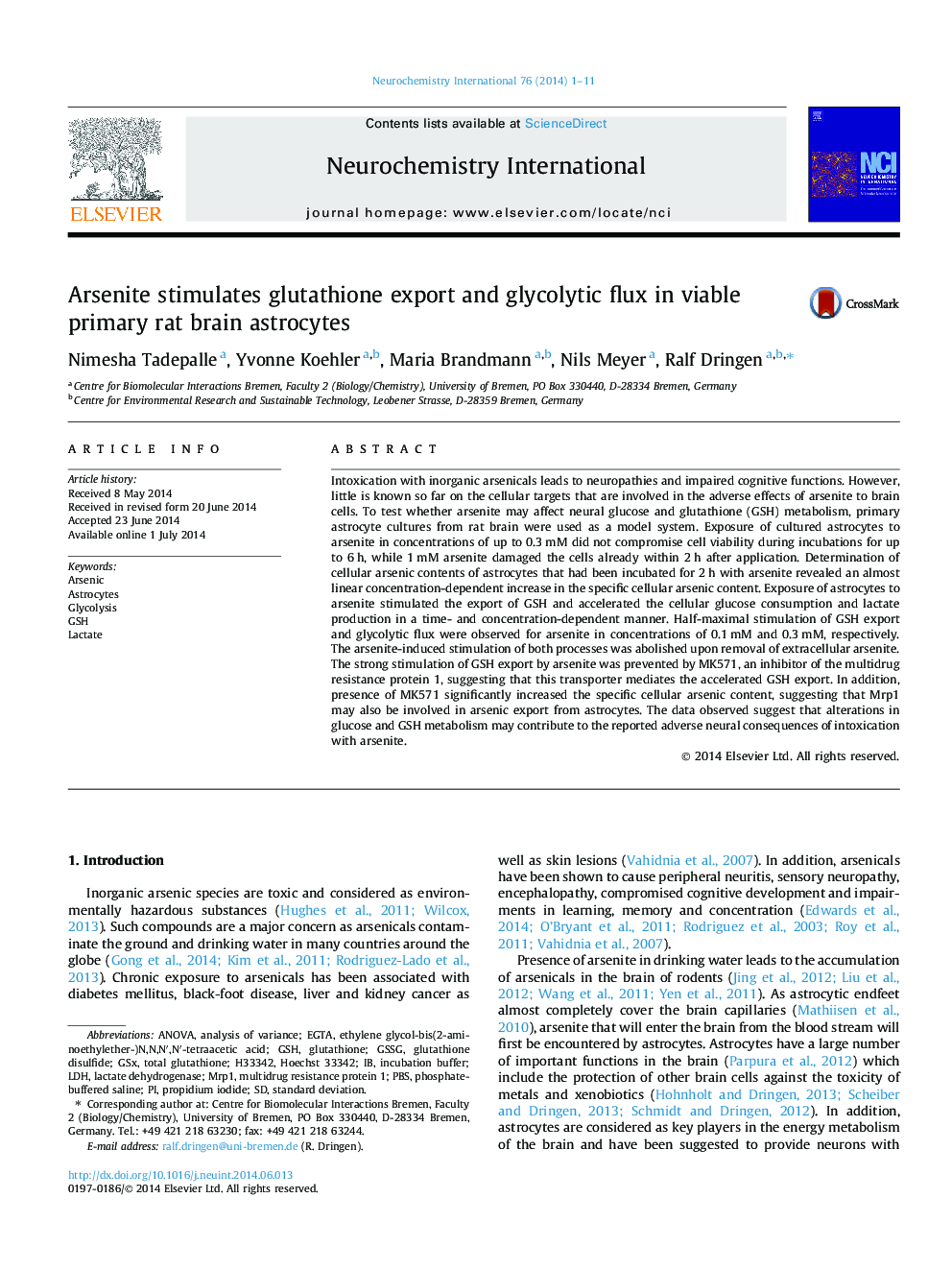| کد مقاله | کد نشریه | سال انتشار | مقاله انگلیسی | نسخه تمام متن |
|---|---|---|---|---|
| 2200529 | 1551297 | 2014 | 11 صفحه PDF | دانلود رایگان |
• Cultured astrocytes efficiently accumulate arsenite.
• Arsenite stimulates rapid GSH export from viable astrocytes.
• Inhibition of Mrp1 prevents the arsenite-induced GSH export.
• Arsenite stimulates glycolytic lactate production in astrocytes.
• Removal of arsenite abolishes the stimulation of GSH export and glycolytic flux.
Intoxication with inorganic arsenicals leads to neuropathies and impaired cognitive functions. However, little is known so far on the cellular targets that are involved in the adverse effects of arsenite to brain cells. To test whether arsenite may affect neural glucose and glutathione (GSH) metabolism, primary astrocyte cultures from rat brain were used as a model system. Exposure of cultured astrocytes to arsenite in concentrations of up to 0.3 mM did not compromise cell viability during incubations for up to 6 h, while 1 mM arsenite damaged the cells already within 2 h after application. Determination of cellular arsenic contents of astrocytes that had been incubated for 2 h with arsenite revealed an almost linear concentration-dependent increase in the specific cellular arsenic content. Exposure of astrocytes to arsenite stimulated the export of GSH and accelerated the cellular glucose consumption and lactate production in a time- and concentration-dependent manner. Half-maximal stimulation of GSH export and glycolytic flux were observed for arsenite in concentrations of 0.1 mM and 0.3 mM, respectively. The arsenite-induced stimulation of both processes was abolished upon removal of extracellular arsenite. The strong stimulation of GSH export by arsenite was prevented by MK571, an inhibitor of the multidrug resistance protein 1, suggesting that this transporter mediates the accelerated GSH export. In addition, presence of MK571 significantly increased the specific cellular arsenic content, suggesting that Mrp1 may also be involved in arsenic export from astrocytes. The data observed suggest that alterations in glucose and GSH metabolism may contribute to the reported adverse neural consequences of intoxication with arsenite.
Journal: Neurochemistry International - Volume 76, October 2014, Pages 1–11
